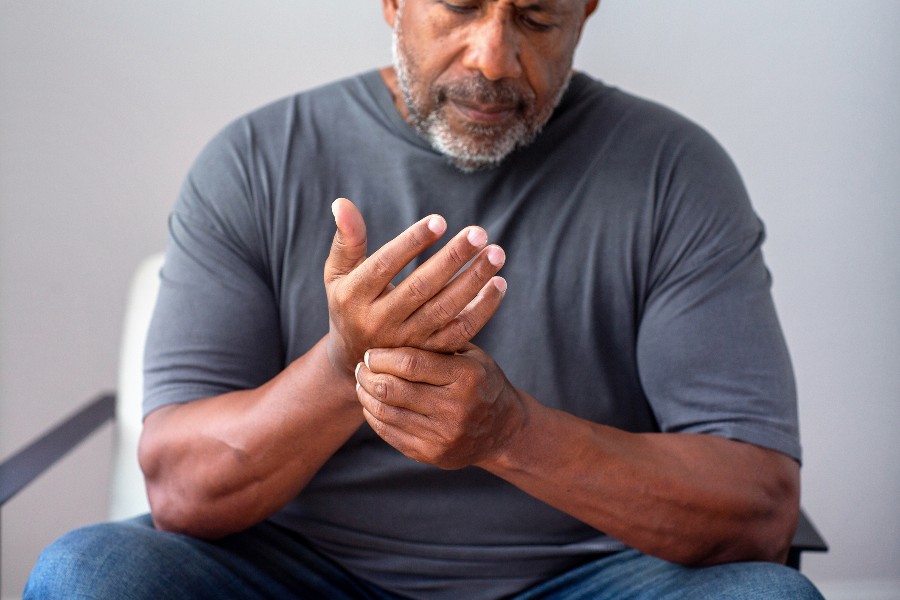Arthritis is a common condition affecting an estimated one in five US adults. The joint pain and stiffness caused by arthritis can greatly impact your daily activities and quality of life. Learn more about arthritis and how to treat it as you seek relief from your symptoms.

Types, Causes, and Symptoms of Arthritis
There are over 100 types of arthritis, but the most common are osteoarthritis (OA) and rheumatoid arthritis (RA).
OA, or wear-and-tear arthritis, occurs when the cartilage that cushions the ends of your bones wears down over time. The most common causes are aging, overuse, joint injuries, and obesity. Symptoms include pain, swelling, and stiffness, with weight-bearing joints like the knees, hips, and spine being commonly affected.
In contrast, RA is an autoimmune disorder that occurs when your immune system attacks the lining of your joints. Young people, even children, can experience inflammation, warmth, and joint damage caused by RA. The hands, wrists, feet, and ankles are most commonly affected.
Arthritis Pain Treatment Options
Effectively managing arthritis pain may require a combination of treatments tailored to your needs. Here are several options to consider.
Medications
Over-the-counter analgesic pain medications like acetaminophen can help manage mild pain. Non-steroidal anti-inflammatory drugs (NSAIDs) like ibuprofen can also be effective but should be used with caution.
If you have rheumatoid arthritis, ask your doctor about disease-modifying anti-rheumatic drugs (DMARDs) designed to slow the progression of RA. Biologic response modifiers may be used in conjunction with DMARDs when treating rheumatoid arthritis.
Lifestyle Changes
If you’re overweight, a healthy diet and exercise program can help you lose weight and reduce stress on your joints. Aim for a balanced diet of fruits, vegetables, whole grains, lean proteins, and healthy fats. Anti-inflammatory foods, such as those rich in omega-3 fatty acids, antioxidants, and fiber, can also help manage arthritis symptoms. Then, adopt a low-impact exercise routine that includes activities like swimming, walking, or biking to improve joint function and reduce stiffness.
Interventional Procedures
For more severe cases, medications and lifestyle changes may not be enough. Consider these interventional procedures to treat arthritis pain:
- Epidural injections alleviate neck or back pain that radiates down your arms and legs by reducing inflammation around the spinal nerves.
- Nerve blocks deliver pain-relieving medications directly to irritated nerves for targeted relief.
- Facet joint injections send medications into the facet joints of the spine to reduce back and neck pain caused by arthritis.
- Sacroiliac joint injections target the sacroiliac joints to reduce lower back and buttock pain.
- Other joint injections may be administered to the shoulders, hips, knees, and other joints to reduce inflammation and pain at the source.
Arthritis Pain Relief
With this information about how to treat arthritis pain, you may be ready to try something new. Greater Maryland Pain Management offers customized joint pain treatment based on your specific needs. Our highly skilled doctors combine interventional procedures and medication management to provide effective arthritis relief. Contact us at (410) 648-2439 today to schedule an appointment at one of our six Greater Maryland locations.